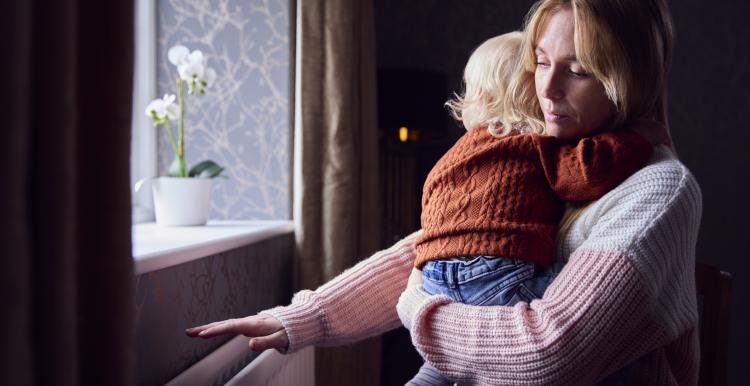9 in 10 Herts residents have been affected by Cost of Living

The Report is one of the first to explore the real-life stories and impact of this crisis on local people, who have told us about the difficult daily challenges they are facing and the toll this is taking on their physical and mental health.
Working in partnership with Hertfordshire County Council, we captured the experiences of 7,043 Hertfordshire residents in our survey that ran between December 2022 and March 2023. The Council, NHS and local services have welcomed the research and have already used the findings to take action to help those struggling.
What were the findings from those surveyed?
- 9 in 10 (93%) have been impacted by rising costs - 69% stating it had affected them a bit but they were managing and a further 24% saying they had been affected a lot and were struggling.
“I cannot afford to rent, I cannot afford to get a mortgage and the Council refuse to put me on the housing register. I am 52 years old, I’ve worked all my life and have nothing but an extremely bleak future ahead.”
- 4 in 10 have just enough, or not enough money for basic necessities.
“I have to scrape by every single day. The mortgage rates keep going up and I don’t know how much longer I can hang on to my house. I will be homeless.”
- 8 in 10 have used less heating or made other choices to reduce their energy bills.
“Being a carer for someone who suffers with dementia and incontinence, it’s impossible to save on energy especially heating and washing and drying of clothes and bedding regularly.”
- 6 in 10 have reduced the amount of food they eat and/or bought cheaper types of food.
“I work as a nurse and I choose not to eat on work days to save money.”
- 3 in 10 said their physical health has been affected by rising costs and 5 in 10 said their mental health has been affected by rising costs.
- 45% said their access to healthcare has been affected by rising costs. Many have not visited the dentist or opticians, could not travel to medical appointments, purchase prescriptions or medication, or buy mobility/hearing aids and equipment to help with their health.
“Had to cancel hospital appointments as couldn’t afford petrol or car parking.”
“I try hard not to charge my portable oxygen or my mobility scooter. Stay in, saves money.”
In addition, we found:
- 7 in 10 single parents had been seriously impacted by the rising cost of living – the hardest hit group according to our findings.
- Other groups disproportionately affected included those under the age of 54, carers, those from an Asian or Black ethnic background, disabled people and people with a long-term condition.
- Awareness of local provisions and support was relatively good, however the actual use of these services was low.
- Only 12% of respondents had accessed support for their physical and/or mental health.
Do you need support?
If you’re struggling with rising costs, please visit the Hertfordshire County Council website which has a range of resources including money advice, energy and heating support, and food support. Help and advice is also available by calling the Council on 0300 123 4042.
You can also call HertsHelp on 0300 123 4044 or find out more here about what help is available.
What is being done to help?
Since December 2022, we have provided local public services with fortnightly updates with the information coming in from our Cost of Living research, so they could understand the impact of the crisis on residents. This has helped local providers decide where their support services were most needed and which groups were missing out.
- Hertfordshire County Council has distributed the Household Support Fund across the County, worth approximately £12 million, providing critical support to those in most need.
- Council’s Money Advice Unit has provided advice, assistance and advocacy on benefits for over 5000 local residents, resulting in benefit gains of over £22 million.
- Council’s Building Life Chances Programme has grown to help communities with food, health inequalities, crisis support and employment.
- Council has used our findings to increase awareness and uptake of services created to help those struggling, such as the Warm Spaces scheme.
- Local NHS providers are also helping communities, patients and staff.
- For patients, warm hubs have been created within services. Staff have been trained on how to appropriately signpost patients, carers and relatives who have financial concerns to find help. Some NHS services have also created a Cost of Living page on their website with a list of local resources.
- For staff, initiatives have included access to food bank vouchers, free counselling, psychological support and physiotherapy, as well as financial wellbeing leaflets, webinars and signposting information.
All these efforts are just the start of a long, ongoing process that will undoubtedly expand further to meet ever-growing demand.
“Rising costs are hurting people across Hertfordshire and there has been a particular rise in the number of people who have normally managed, but are now struggling in ways that are damaging their physical and mental health and their ability to access health services.
Sadly, there are no simple solutions to this crisis and it has been our role to gather and share this enormous wealth of information with Hertfordshire County Council, the NHS and local organisations so they can better help people.
Cost of Living will continue to be at the centre of our inequalities agenda and we will be monitoring what the Council, the NHS and other organisations are doing, to ensure the voices of the 7,000 people who spoke to us are valued, heard and acted upon.”


